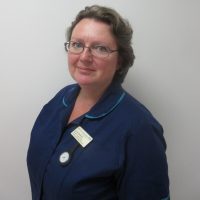Overview of the Research
The Anaesthetic Department and Critical Care Unit research involvement is led by Dr Tom Lawton and Dr Andrew Brennan.
Quality and progressive health care and best evidenced treatment options are generated from sound clinical research. Locally we participate in National and International research which helps the teams to deliver the best evidenced care for patients who require an anaesthetic or critical care stay.
Patients and their families are offered the opportunity to participate in relevant research. Most of the studies that are offered are from the NIHR Portfolio, which means that the question being asked by the research is seen as important to many people or could provide a very significant progression in clinical care outcomes for example, a certain medical condition.
In 2017 the Critical Care Unit moved to its new purpose built location in the hospital, providing more space for patients and their relatives.
The Research Team
Our Research
LATEST RESEARCH
PQIP: Improving outcomes after surgery
Perioperative care is the care which patients receive when preparing for, undergoing and recuperating from surgery. Perioperative medicine aims to minimise the risk to patients of developing complications during and after surgery. The types of complication which may occur range from the relatively minor and short-lived, but which can be distressing to patients (for example, nausea and vomiting due to the type of anaesthesia or surgery) to very significant complications such as infection, bleeding or blood clots, which can cause longer-term harm. This risk of developing complications is specific to the individual patient, and will be dependent on their general health and fitness (less fit patients have a greater risk of complications) and also on the type of surgery they are having. There are a number of ways in which clinical teams and patients can work together to minimize the risk of harm and improve the management of medical illnesses that may occur around the time of surgery. Perioperative care involves input from several different teams, including anaesthesia, surgery, intensive care, general practice and many other allied specialties.
Around 10 million operations are performed in the NHS each year. What happens to these patients? What are the complication rates? What is patient recovery like? Are we providing a good service?
These are some of the questions that the Perioperative Quality Improvement Programme (PQIP) wants to answer. The aim is to look at perioperative care of patients undergoing major non-cardiac surgery and measure complication rates, failure to rescue and patient reported outcomes. We hope to improve patient outcomes across the UK, reducing variation in processes of care and supporting implementation of best practice. To achieve this multidisciplinary involvement is absolutely vital – nurses, surgeons, anaesthetists, managers and patients all working together.
There is more information on the study website https://pqip.org.uk/pages/patients
For Twitter users @PQIPNews
PRISM is an international, multi-centre, pragmatic, randomised controlled trial with open study group allocation, to determine if routine continuous positive airway pressure (CPAP) for four hours immediately after major abdominal surgery is effective prophylaxis against postoperative pneumonia, re-intubation or death.
The PRISM management team is based at Queen Mary University of London in the UK. The trial opened in early 2016, and now has more than 50 sites in Italy, Norway, South Africa, Spain, Sweden and the UK. The trial recently recruited our 2000th patient.
In Bradford, 41 patients have chosen to participate so far in this trial.
There is more information on the study website http://prismtrial.org/
For twitter users @prismtrial



